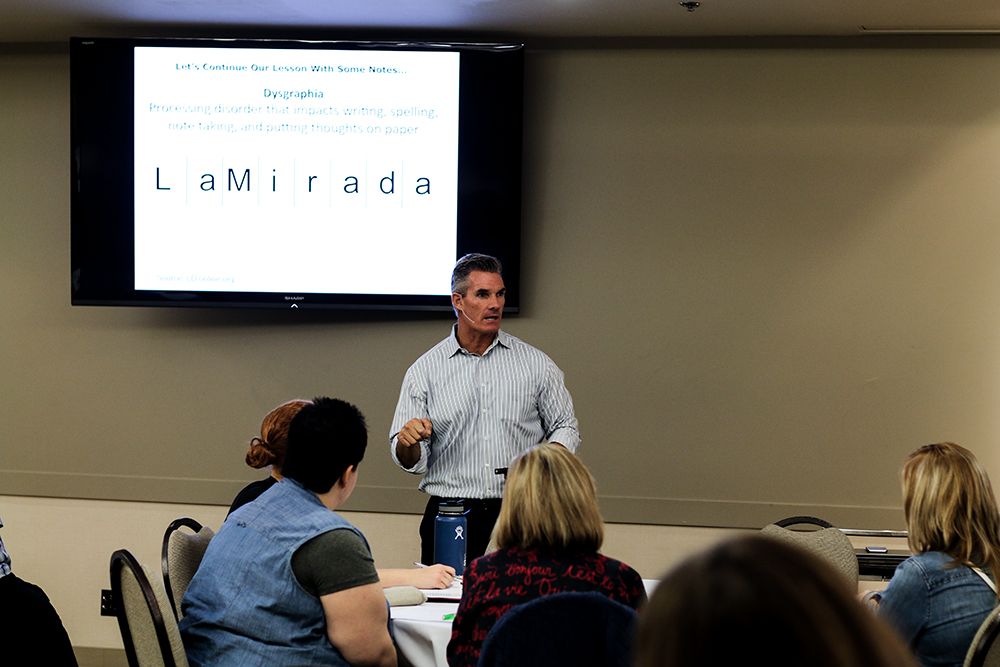To experience the reality faced by students with learning disabilities, approximately 25 students, family members and educators attended “‘Help me Understand’ Walking a Mile in the Shoes of a Student with Learning, Social, & Emotional Special Needs” in the Caf banquet room on Oct. 29.
Showing compassion
David Costillo, coordinator of recruiting and community relations for the school of education, opened the event by explaining how responding appropriately to students with learning disabilities involves showing compassion. Dennis Eastman, director of teacher education, then began the discussion using simulation techniques, statistics and personal experiences to explain the difficulties some students experience in the classroom.
“What I’m trying to do is provide teachers and parents, average Joe citizen, with an opportunity to have some empathy for a moment,” Dennis said. “Let’s walk a mile in the shoes of the student who has learning needs.”
Dennis began by explaining the importance of understanding the prevalence of learning disabilities by showing the number of students with learning disabilities in California. Out of 6,236,672 K-12 students in California, over 10 percent, 717,961, have special needs, according to Dennis.
Finding solace
Dennis then invited his son Micah Eastman to the front to talk about his personal struggles with education while growing up. Although Micah did not know he had dyslexia until he was a teenager, Micah found solace in his creativity, specifically music and writing.
“From my speech I want them to see that it’s not hopeless because your child may not be able to divide or to multiply, doesn’t mean he’s not going to make something happen someday, and of this whole conference I really do want to see more… done for dyslexic kids and kids with needs,” Micah said.
Following Micah’s speech, Dennis began a series of simulations to engage the audience in experiences similar to Micah’s and other students’. The simulations included reading, writing, math and oral communication, representing different disabilities including dyslexia, dysgraphia and autism.
Walking in another’s shoes
Dennis invited four people to the front during one simulation to show how some students have a difficult time processing information. While one person stood in the middle, another stood behind them and rubbed their neck, while two others tapped the middle person’s shoulder and sang a song. The fourth person read information about deserts to the person in the middle, who then had to repeat the information after the simulation.
“I think [the simulations have] been really helpful to really understand and step in the shoes of a person with a disability because we learn so much about it in our classes… but we don’t really experience it ourselves,” said Rachel Kam, sophomore communications disorder major. “It was fun but at the same time, it’s like, people live in this reality.”
Dennis finished the lecture by emphasizing the importance of why the church should care about students with learning disabilities. Caring for these students requires compassion instead of pity.
“It’s important for Christians to know how to interact and serve students with special needs, and as we talked about today, it’s not something that we do to the degree that we could. So I appreciate the opportunity to bring greater awareness to the community of what that looks like in practice,” Costillo said.







